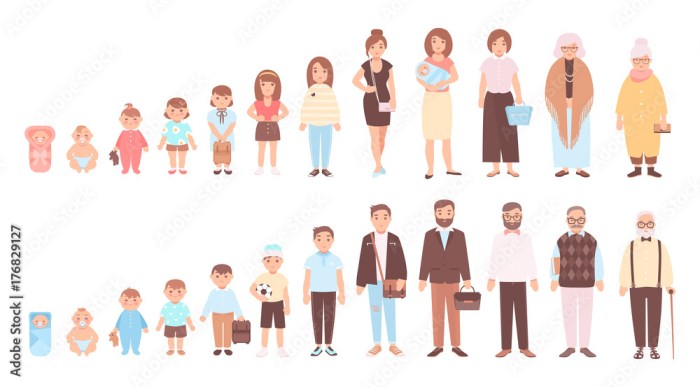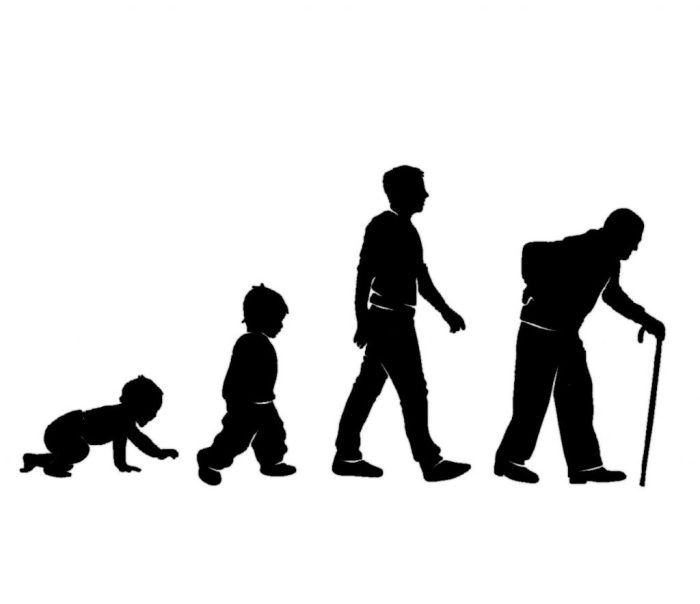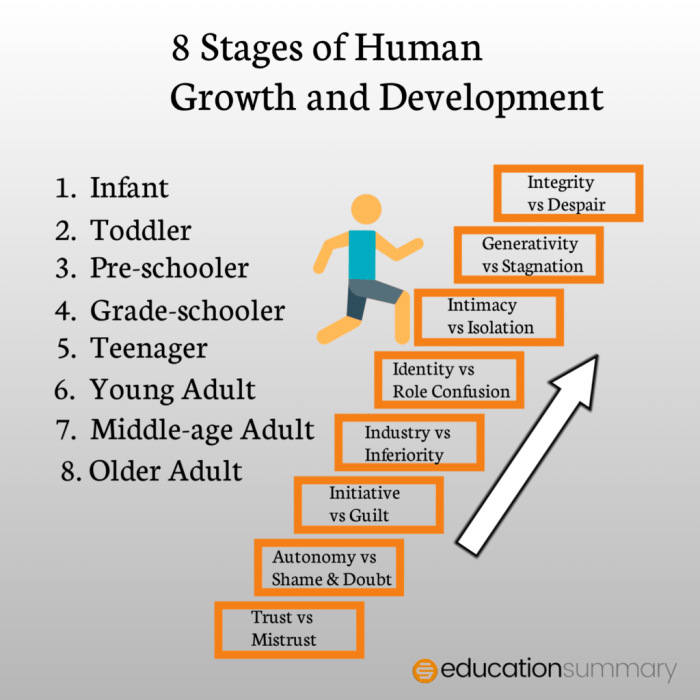Human growth and development hosa is a fascinating and multifaceted field that encompasses the physical, cognitive, and emotional changes that occur throughout our lives. Understanding these changes is crucial for optimizing health and well-being, and this comprehensive guide delves into the key concepts, stages, and applications of human growth and development hosa.
From the prenatal period to adulthood, we undergo remarkable transformations that shape our bodies, minds, and identities. This guide explores the major stages of human growth and development hosa, highlighting the milestones and challenges that accompany each phase.
Human Growth and Development Definition

Human growth and development refers to the physical, cognitive, and emotional changes that occur throughout an individual’s lifespan, from conception to adulthood. Growth refers to the increase in physical size and weight, while development encompasses the qualitative changes in skills, abilities, and behaviors.
Understanding human growth and development is crucial for several reasons. It provides a framework for understanding the normal progression of changes that occur throughout life, allowing us to identify potential deviations or delays. It also helps professionals in fields such as education, healthcare, and social work to provide appropriate support and interventions at different stages of development.
Stages of Human Growth and Development

Prenatal Stage
This stage begins at conception and lasts until birth. The embryo undergoes rapid growth and development, forming the major organs and systems. The fetus’s movements and responses to stimuli become increasingly complex as the nervous system matures.
Infancy
This stage spans from birth to 18 months. Infants experience rapid physical growth, develop basic motor skills, and begin to communicate through vocalizations and gestures. They also develop social and emotional attachments to their primary caregivers.
Early Childhood
This stage lasts from 18 months to 6 years. Children continue to grow physically and cognitively, developing language, problem-solving skills, and social competence. They also gain independence and autonomy.
Middle Childhood
This stage encompasses ages 6 to 11 years. Children experience steady physical growth and develop advanced cognitive skills, such as critical thinking and abstract reasoning. They become more independent and engage in social activities with peers.
Adolescence
This stage begins at puberty (around 11-14 years) and ends at young adulthood (around 18-25 years). Adolescents experience rapid physical changes, including growth spurts and sexual maturation. They also develop advanced cognitive abilities, form their own identities, and explore independence.
Adulthood
This stage encompasses the period from young adulthood to old age. Physical growth slows down, but cognitive and emotional development continues. Adults establish careers, relationships, and families. They also face challenges related to aging, such as declining physical function and increased risk of chronic diseases.
Factors Influencing Human Growth and Development
Genetics, Human growth and development hosa
Genes play a significant role in determining an individual’s growth and development potential. They influence physical characteristics, cognitive abilities, and susceptibility to certain diseases.
Environment
The environment also has a profound impact on growth and development. Factors such as nutrition, exposure to toxins, and social interactions can influence physical, cognitive, and emotional outcomes.
Nutrition
Adequate nutrition is essential for optimal growth and development. Nutrients such as proteins, carbohydrates, and vitamins provide the building blocks for physical growth and cognitive function.
Disorders of Human Growth and Development: Human Growth And Development Hosa
Growth Disorders
Growth disorders can affect height, weight, or both. Examples include dwarfism, gigantism, and failure to thrive.
Developmental Disorders
Developmental disorders impair cognitive, language, or social skills. Examples include autism spectrum disorder, intellectual disability, and attention deficit hyperactivity disorder (ADHD).
Genetic Disorders
Genetic disorders are caused by mutations in genes. Examples include Down syndrome, cystic fibrosis, and sickle cell anemia.
Importance of Early Childhood Development
Early childhood development (ECD) is critical for long-term health and well-being. Experiences during this period shape brain development, social skills, and emotional regulation.
ECD programs and interventions can support healthy development by providing access to quality nutrition, healthcare, and educational opportunities.
Applications of Human Growth and Development Knowledge

Education
Understanding human growth and development helps educators tailor instruction and support to meet the needs of students at different stages.
Healthcare
Healthcare professionals use this knowledge to provide age-appropriate preventive care, diagnose and treat disorders, and promote healthy lifestyles.
Social Work
Social workers apply this knowledge to assess and support individuals and families facing challenges related to growth and development.
Policymaking
Policymakers use this knowledge to develop policies that support healthy growth and development for all children and families.
Query Resolution
What is the difference between growth and development?
Growth refers to physical changes in size and weight, while development encompasses broader changes in cognitive, emotional, and social functioning.
What are the key factors that influence human growth and development?
Genetics, environment, and nutrition are the primary factors that shape human growth and development.
What are some common disorders of human growth and development?
Disorders such as growth hormone deficiency, Down syndrome, and autism spectrum disorder can affect human growth and development.
Why is early childhood development so important?
Early childhood experiences play a crucial role in shaping brain development, social skills, and emotional regulation, laying the foundation for long-term health and well-being.
How can knowledge of human growth and development be applied in different fields?
This knowledge has applications in education, healthcare, social work, and policymaking, helping to improve outcomes for individuals and society.